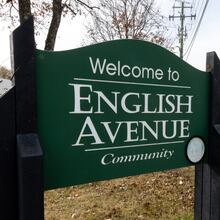A company providing services to lenders and home buyers says a recent Georgia court case that tightened the enforcement of foreclosure laws will raise questions about the ownership of thousands of homes, create uncertainty in the housing market and result in many lawsuits.
The July court ruling says foreclosure documents and public foreclosure notices need clear identification of the loan owner or those legally able to negotiate for the owner, which many recent documents lacked because of the complex ways in which loans were created and sold to investors.
"...the Court of Appeals' decision will cause great uncertainty in Georgia foreclosures as to the validity of a foreclosure, particularly those foreclosures that have occurred since 2008..." said attorney William Brown in a brief filed to encourage the Georgia Supreme Court to review the ruling.
He filed it on behalf of Old Republic National Title Insurance Company which was not involved in the case but could be affected because it insures home titles. The brief gives the latest hint at the broad impact a July state Court of Appeals ruling could have. Georgia has one of the highest foreclosure rates in the nation. Ball park guesses at how many homes could be affected by the ruling range from thousands to tens of thousands.
"Even if the Georgia Supreme Court decides not to review this at all it is quite difficult to guess or measure the impact on foreclosures that occurred," said Frank Alexander, a real estate law professor at Emory University.
Cases will have to be reviewed individually to see if they met the law's requirements, he said.
"I certainly would not be sounding alarm bells...because many, if not most [foreclosures] were done in compliance with the statute," Alexander said.
But there will be many "tough" cases out there that will fall into question, he said.
The state Court of Appeals ruled in Reese vs. Provident Funding last July that the Reese family of Cobb County were improperly foreclosed upon because the notice they got was improper.
State law was changed in 2008 to require that foreclosure notices and legal advertisements include the name and contact information of the mortgage owner and organizations able to negotiate a modification, short sale or other relief on the lender's behalf.
That information has been lacking in some foreclosures because lenders who originate loans often sell them to businesses such as investment trusts. The lenders continue serving as stand-ins for the loan owner by handling paperwork, payments and the foreclosure process.
About the Author





